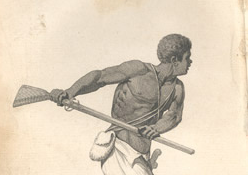Article
Jamaican Maroons in Nova Scotia
The ancestors of the Maroons of Jamaica were enslaved Africans who had been brought there by the Spanish in the 16th and 17th centuries, and later by the British (who captured Jamaica from Spain in 1655), to work its lucrative sugar plantations. The word maroon was widely used to describe a runaway, and maroonage to denote the act and action of escaping enslavement, whether temporarily or permanently. After a series of wars with the colonial government in Jamaica, one group of Maroons was deported to Nova Scotia in 1796. While Maroon communities existed in Nova Scotia for only four years before they were sent to Sierra Leone, their legacy in Canada endures.














